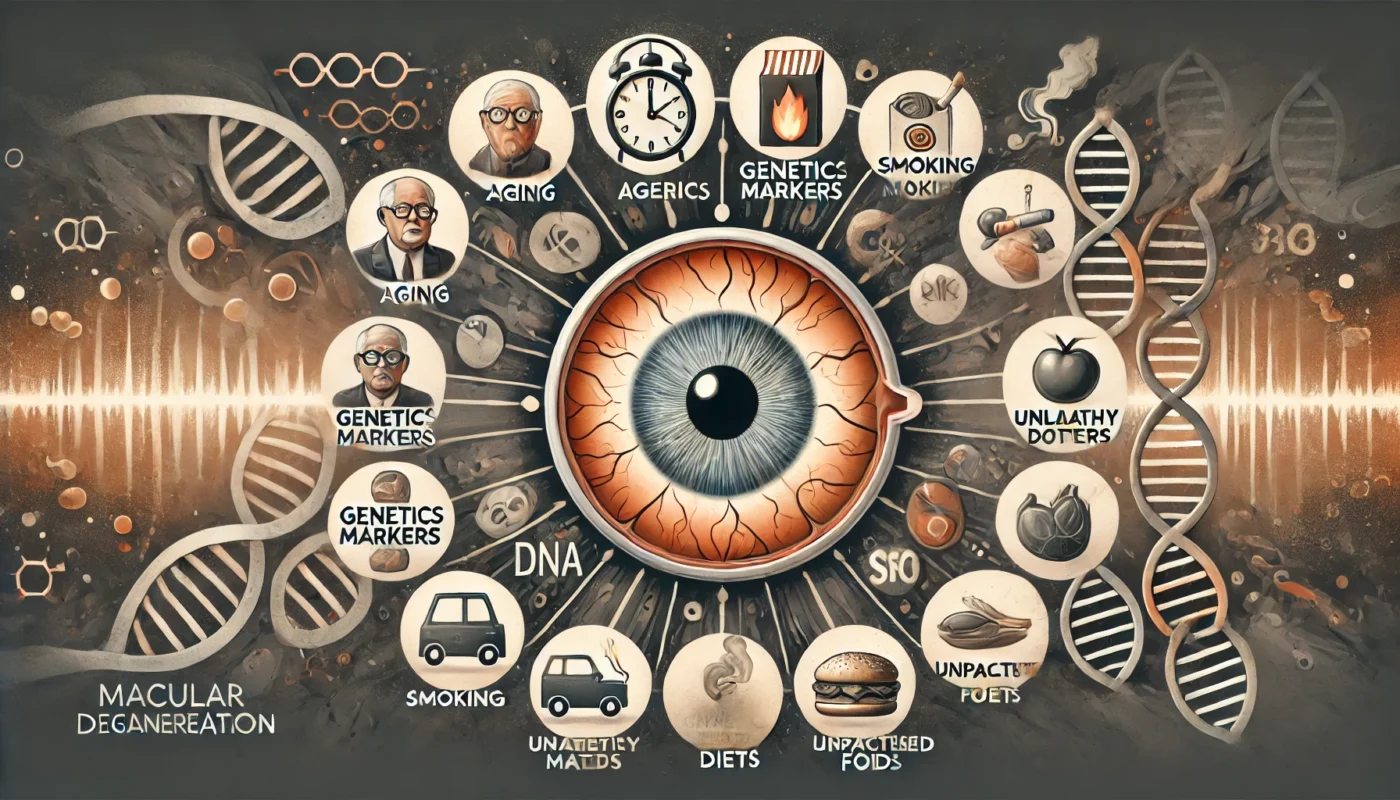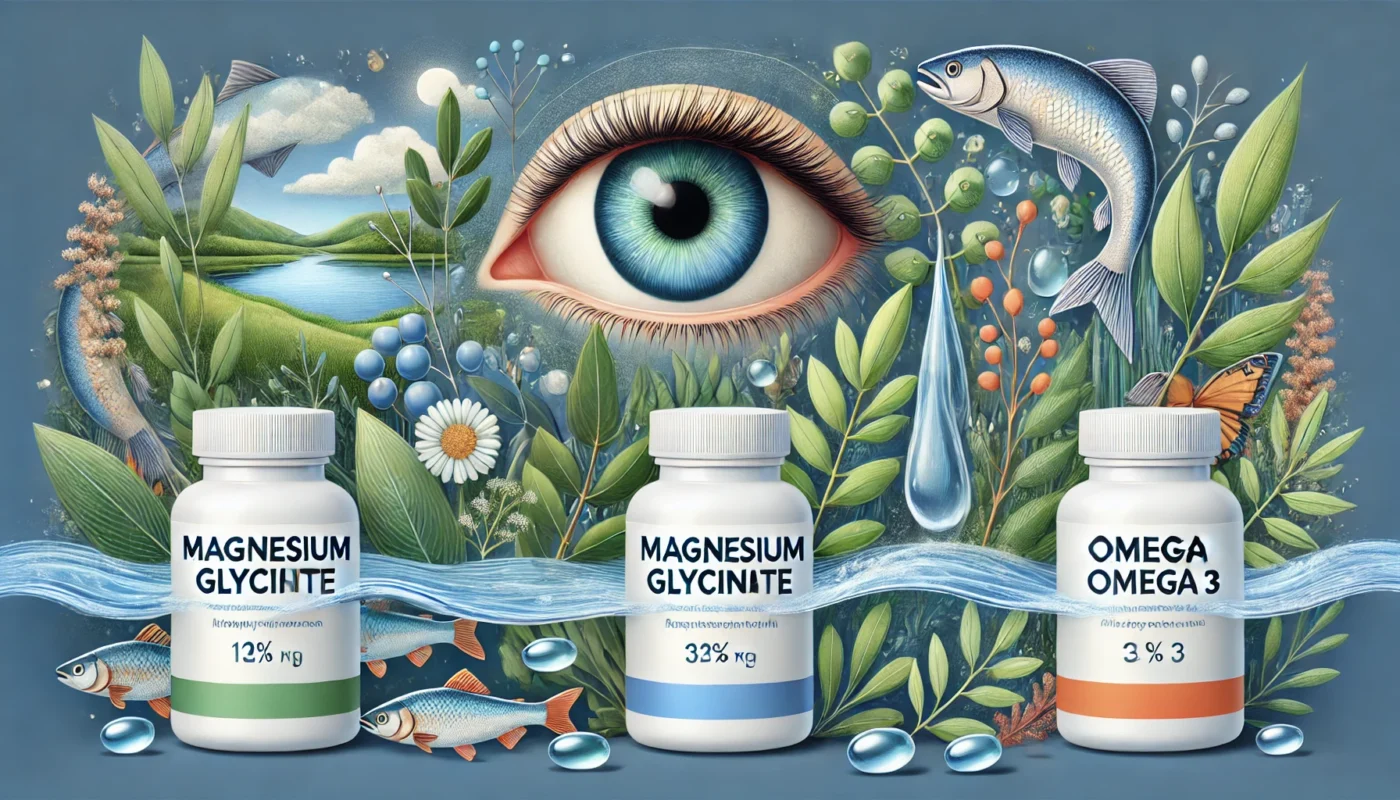Macular degeneration is a common eye disorder and the leading cause of vision loss in older adults, particularly those over 60. Characterized by the deterioration of the central portion of the retina, this condition significantly affects the ability to perform tasks that require sharp vision, such as reading, driving, and recognizing faces. According to the BrightFocus Foundation (2023), an estimated 11 million individuals in the United States live with macular degeneration, a number projected to double by 2050. This article delves into the key aspects of macular degeneration, including its symptoms, causes, treatment strategies, and preventive measures, as well as the role of nutritional supplements in managing the condition.
You May Also Like:
What is Macular Degeneration?
Macular degeneration, often referred to as age-related macular degeneration (AMD), is a progressive eye disorder that affects the macula, the central part of the retina responsible for sharp, detailed vision. AMD is broadly classified into two types:
- Dry AMD (Atrophic): This is the more common form, accounting for approximately 80-90% of cases. It involves the thinning of the macula and the formation of yellow deposits called drusen.
- Wet AMD (Neovascular): Though less common, wet AMD is more severe and involves abnormal blood vessel growth beneath the retina, leading to leakage and rapid vision loss.

Symptoms of Macular Degeneration
The symptoms of macular degeneration vary based on its progression and type. Key symptoms include:
- Blurred Central Vision: Difficulty in seeing fine details while peripheral vision remains unaffected.
- Distorted Vision: Straight lines may appear wavy or crooked.
- Dark Spots: The development of blind spots in the central field of vision.
- Difficulty with Low-Light Vision: Trouble seeing in dim environments, such as restaurants or at dusk.
- Color Perception Changes: Colors may appear less vibrant or bright.
In the early stages, macular degeneration may present no noticeable symptoms, emphasizing the importance of regular eye exams for early detection.
Causes of Macular Degeneration
While the exact cause of macular degeneration remains unknown, several risk factors contribute to its development:
1. Age
Age is the most significant risk factor. The American Academy of Ophthalmology (2022) reports that AMD primarily affects individuals over the age of 60, with risk increasing with each decade of life.
2. Genetics
Family history plays a critical role, as certain genetic variations, such as those in the CFH and ARMS2 genes, are associated with a higher risk of developing AMD.
3. Smoking
Smokers are up to four times more likely to develop AMD compared to non-smokers. A 2018 study in Ophthalmology confirmed smoking as one of the leading preventable risk factors.
4. Cardiovascular Health
Conditions such as hypertension, atherosclerosis, and high cholesterol levels can restrict blood flow to the retina, increasing the risk of AMD.
5. Diet and Nutrition
A diet lacking essential nutrients such as antioxidants, omega-3 fatty acids, and zinc may contribute to macular degeneration. Excessive consumption of saturated fats and refined carbohydrates has also been linked to the condition.
6. Prolonged Sun Exposure
Chronic exposure to ultraviolet (UV) light can accelerate retinal damage, contributing to AMD.

Treatment Options for Macular Degeneration Recovery
While there is no cure for macular degeneration, several treatment options can slow its progression and improve quality of life. These include:
1. Lifestyle Modifications
- Quit Smoking: Eliminating tobacco use reduces the risk of disease progression.
- Healthy Diet: Incorporating leafy greens, fish rich in omega-3 fatty acids, and colorful fruits supports retinal health.
2. Antioxidant and Nutritional Supplementation
The Age-Related Eye Disease Study (AREDS) and its follow-up, AREDS2, identified specific nutrients that slow the progression of AMD. Supplements beneficial for AMD include:
- Zinc Picolinate: Zinc is essential for enzyme function in the retina. The AREDS2 study confirmed that zinc supplementation reduces the risk of AMD progression.
- Vitamin C: As a powerful antioxidant, vitamin C neutralizes free radicals in the retina, protecting against cellular damage.
- Lutein and Zeaxanthin: These carotenoids are concentrated in the macula and filter harmful blue light. A 2017 study in Nutrients showed that supplementation with lutein and zeaxanthin improved visual acuity in AMD patients.
3. Anti-VEGF Therapy for Wet AMD
For wet AMD, anti-vascular endothelial growth factor (VEGF) drugs, such as ranibizumab and aflibercept, inhibit abnormal blood vessel growth. Clinical trials published in The Lancet (2019) demonstrated that anti-VEGF injections significantly preserved vision in 90% of treated patients.
4. Laser Therapy
For select cases of wet AMD, laser photocoagulation can seal leaking blood vessels and slow vision loss.
5. Low Vision Aids
Magnifiers, specialized glasses, and electronic devices can enhance remaining vision and improve the ability to perform daily tasks.
6. Emerging Therapies
Research into gene therapy and stem cell transplants offers hope for future AMD treatments. A 2021 study in Ophthalmology Science explored CRISPR gene-editing techniques, showing potential in targeting genetic mutations linked to AMD.
Nutritional Supplementation for Macular Degeneration Relief
In addition to the AREDS2-recommended supplements, several other nutrients have shown promise in supporting macular health:
- Turmeric: Curcumin, the active compound in turmeric, has anti-inflammatory and antioxidant properties. A 2020 study in Current Eye Research found that curcumin supplementation reduced retinal inflammation in AMD patients.
- Magnesium Glycinate: Magnesium improves blood flow to the retina by relaxing blood vessels, supporting overall eye health.
- N-Acetylcysteine (NAC): NAC boosts glutathione levels, a critical antioxidant in the retina, protecting against oxidative stress.
- Omega-3 Fatty Acids: Found in fish oil, omega-3s support retinal integrity and reduce inflammation.
- Bilberry Extract: This antioxidant-rich extract improves microcirculation in the eyes, reducing oxidative damage.

Steps for Possible Prevention of Macular Degeneration
Preventing AMD requires proactive measures to mitigate risk factors and preserve eye health. Key prevention strategies include:
1. Regular Eye Examinations
Annual eye exams can detect early signs of AMD before noticeable symptoms develop. Advanced diagnostic tools such as optical coherence tomography (OCT) provide detailed retinal imaging.
2. Protect Your Eyes
- UV Protection: Wear sunglasses with 100% UV protection and wide-brimmed hats to shield your eyes from harmful sunlight.
- Blue Light Filters: Limit screen time and use blue light-blocking glasses to reduce digital strain.
3. Maintain a Healthy Lifestyle
- Exercise regularly to improve cardiovascular health and maintain optimal blood flow to the retina.
- Manage underlying conditions such as hypertension and diabetes to reduce vascular stress on the eyes.
4. Adopt a Nutrient-Rich Diet
- Incorporate foods high in antioxidants, such as kale, spinach, and oranges.
- Include fatty fish like salmon and mackerel for omega-3 fatty acids.
5. Avoid Smoking
Avoiding tobacco reduces oxidative stress and improves retinal circulation.
6. Monitor Family History
If AMD runs in your family, consider genetic testing and discuss personalized prevention strategies with an eye care specialist.
Conclusion
Macular degeneration is a complex condition that profoundly affects vision and quality of life. While it remains incurable, advancements in medical treatments, lifestyle modifications, and nutritional supplementation offer hope for managing its progression. Supplements such as zinc picolinate, lutein, and turmeric can play a crucial role in maintaining macular health, alongside proactive prevention strategies like regular eye exams and a nutrient-rich diet. By adopting these measures, individuals can preserve their vision and enhance their overall ocular health.

References
- The Age-Related Eye Disease Study 2 (AREDS2): Study Design and Baseline Characteristics (AREDS2 Report Number 1). Retrieved from: https://pmc.ncbi.nlm.nih.gov/articles/PMC3485447/
- Effect of Supplemental Lutein and Zeaxanthin on Serum, Macular Pigmentation, and Visual Performance in Patients with Early Age-Related Macular Degeneration. Retrieved from: https://pmc.ncbi.nlm.nih.gov/articles/PMC4359817/
- Prevalence of Age-Related Macular Degeneration in the US in 2019. Retrieved from: https://pmc.ncbi.nlm.nih.gov/articles/PMC9634594/
- 5-Year Outcomes with Anti-VEGF Treatment of Neovascular Age-related Macular Degeneration (AMD): The Comparison of AMD Treatments Trials. Retrieved from: https://pmc.ncbi.nlm.nih.gov/articles/PMC4958614/
Important Note: The information contained in this article is for general informational purposes only, and should not be construed as health or medical advice, nor is it intended to diagnose, prevent, treat, or cure any disease or health condition. Before embarking on any diet, fitness regimen, or program of nutritional supplementation, it is advisable to consult your healthcare professional in order to determine its safety and probable efficacy in terms of your individual state of health.
Regarding Nutritional Supplements Or Other Non-Prescription Health Products: If any nutritional supplements or other non-prescription health products are mentioned in the foregoing article, any claims or statements made about them have not been evaluated by the U.S. Food and Drug Administration, and such nutritional supplements or other health products are not intended to diagnose, treat, cure, or prevent any disease.

